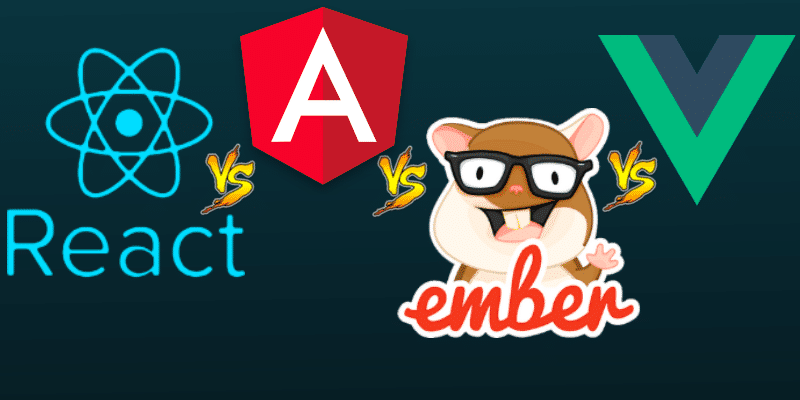In the ever-evolving landscape of web development, the choice of a front-end framework can be the linchpin of success. In this piece, we'll embark on a thrilling journey through the battle royale of front-end frameworks, with React JS taking the stage against its formidable contenders.
Join us as we dissect each contender, uncover their strengths, and help you unravel the best fit for your next project.

React JS has carved its place in the sun with its unparalleled flexibility and a component-based architecture. The virtual DOM is its secret weapon, updating only the essential parts of a page, delivering blazing performance.
React's one-way data flow simplifies state management and ensures the creation of reusable components. The vast library ecosystem and an enthusiastic community provide unwavering support for this heavyweight.
Angular charts a distinctive course with its two-way data binding system. It excels in taming complex applications with a myriad of interconnected components.
Angular's opinionated framework structure brings order and best practices to the table, a boon for large development teams. However, it might present a steeper learning curve for newcomers compared to React.
Vue.js, much like React, embraces the virtual DOM and component-based architecture but puts simplicity at the forefront. Its lucid and concise syntax has made it a favorite among developers, especially those new to front-end development.
Top-notch documentation and a gentle learning curve make Vue.js a rapid choice for those looking to make a swift entry into front-end development.
Ember.js, though less in the limelight, brings its unique perspective with an opinionated approach. It comes bundled with a set of conventions and best practices right out of the box, reducing decision fatigue and accelerating development cycles.
Ember.js shines when building ambitious web applications and is renowned for its stability, making it an ideal choice for long-term projects.
When it comes to choosing the ultimate front-end framework, there's no clear victor. React JS, Angular, Vue.js, and Ember.js each carry their own unique strengths, catering to different developer preferences and project requirements. React's adaptability, Angular's robustness, Vue.js's simplicity, and Ember.js's opinionated structure all offer enticing options.
The crux of the matter lies in understanding your project's requirements. Consider factors like complexity, team size, the learning curve, and ecosystem support. Whichever framework you embrace, the ultimate goal remains to craft remarkable and efficient web applications that deliver an exceptional user experience.
So, gather your project's prerequisites, experiment with diverse frameworks, and unleash your creative spirit as you set forth on your web development expedition. Remember, you have a treasure trove of powerful tools at your disposal; choose the one that aligns seamlessly with your goals and shines brightest in your hands.
We hope you relished this journey through the front-end framework battleground! Our commitment to providing you with valuable content continues. Stay in the loop by following us and stay tuned for what's on the horizon!
